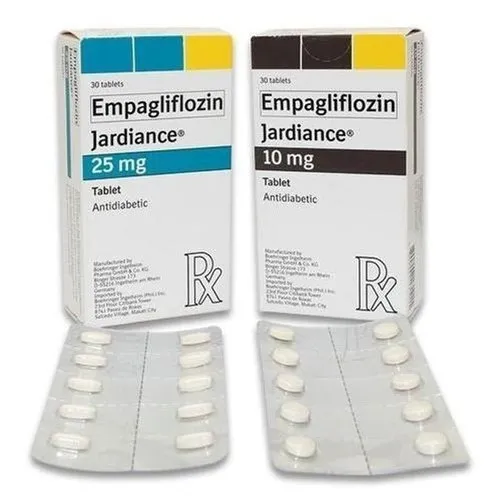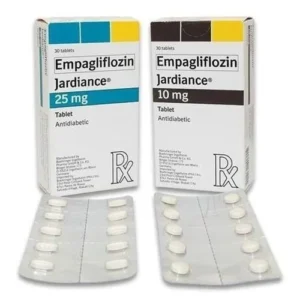
Empagliflozin- An SGLT-2 Inhibitor
What is Empagliflozin?
Empagliflozin is an antidiabetic medication classified as a Na-glucose co-transporter 2 (SGLT-2) inhibitor. It is primarily used for managing type 2 diabetes and offers additional benefits for heart failure and chronic kidney disease.
Mechanism of Action
Empagliflozin perform its work by inhibiting the SGLT-2 protein in the kidneys. SGLT-2 is responsible for reabsorbing glucose back into the bloodstream. By blocking this protein, it prevents glucose reabsorption, leading to increased glucose excretion in urine. This lowers blood glucose levels. Additionally, it can reduce blood pressure and improve heart function in patients with heart failure.
Uses of Empagliflozin
- Type 2 Diabetes
Empagliflozin is prescribed to lower blood glucose levels in patients with type 2 diabetes, typically used alongside diet and exercise.
- Heart Failure
It improves heart function and reduces hospitalization for heart failure, particularly in those with reduced ejection fraction.
- Chronic Kidney Disease (CKD)
Empagliflozin helps slow the progression of kidney disease in patients with type 2 diabetes and CKD.
Side Effects of Empagliflozin
Empagliflozin may cause some common and serious side effects:
Common Side Effects:
- Urinary tract infections (UTIs)
- Genital infections (particularly in women)
- Increased urination
- Dehydration and low blood pressure
- Dizziness or light-headedness
Serious Side Effects:
- Ketoacidosis: Rare, but a serious condition where ketones build up in the blood.
- Acute Kidney Injury: Reduced kidney function may occur in some cases, particularly if dehydrated.
- Amputations: A potential risk, especially in patients with poor circulation or foot problems.
Empagliflozin Brand Names with Specifications
| Brand Name | Dosage Forms | Indications | Available Doses | Administration |
| Jardiance | Oral tablets | Type 2 diabetes, heart failure, CKD | 10 mg, 25 mg | Once daily, with or without food |
| Synjardy | Oral tablets | Type 2 diabetes | 5 mg/500 mg, 5 mg/1000 mg | Once or twice daily with food |
Contraindications
Empagliflozin is contraindicated in the following situations:
- intense renal impairment (e.g., eGFR < 30 mL/min/1.73 m²)
- End-stage renal disease
- Dialysis
- Hypersensitivity reactions to empagliflozin or other SGLT-2 inhibitors
- Pregnancy and lactation (insufficient safety data)
Drug Interactions of Empagliflozin
It may interact with various medications:
- Diuretics: Increased risk of dehydration and hypotension when used together.
- Insulin or Insulin Secretagogues: level up the risk of hypoglycemia.
- RAAS Inhibitors (ACE inhibitors, ARBs): May increase the risk of dehydration and kidney dysfunction.
- Lithium: Empagliflozin may increase lithium levels, increasing the risk of toxicity.
Patients should consult their healthcare provider to manage potential interactions.
Conclusion
Empagliflozin is an effective SGLT-2 inhibitor for managing type 2 diabetes, heart failure, and chronic kidney disease. Although it offers several benefits, patients should be mindful of potential side effects and drug interactions. Always consult with a healthcare provider to ensure safe and optimal use of this medication.
